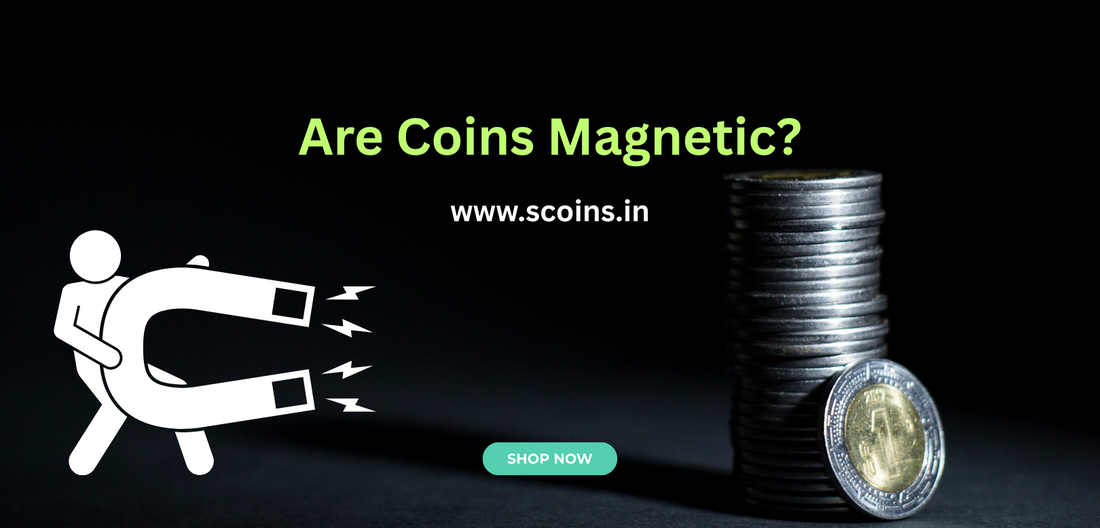
Are Coins Magnetic?
Have you ever tried picking up a coin with a magnet and wondered, "Are coins magnetic?" The answer isn’t as straightforward as you might think! Whether a coin sticks to a magnet or not depends on its metal composition, and that opens up a world of science, history, and even collecting secrets.
In this blog, we’ll dive into the magnetic properties of coins, which coins are magnetic, why some aren’t, and what it means for collectors, metal detectors, and curious minds alike.
Understanding Magnetism: Why Are Some Coins Magnetic?
At its core, magnetism is a property of certain materials, primarily metals like iron, nickel, and cobalt. These metals are called ferromagnetic, which means they can be attracted to magnets.
So, when it comes to coins, if they contain enough ferromagnetic material, they will be magnetic. If not, they’ll simply fall off your fridge magnet!
Which Coins Are Magnetic?
Here’s a breakdown of magnetic coins based on metal composition:
✅ Magnetic Coins
- Steel coins (common in modern low-denomination coins)
- Coins with nickel-plated steel cores
- Some modern 1p and 2p coins in the UK (after 1992)
- Certain Canadian coins made with steel
These coins stick to magnets because they contain iron or nickel, making them ferromagnetic.
❌ Non-Magnetic Coins
- Coins made of copper, silver, gold, aluminum, or zinc
- Most old coins and higher denomination coins
- US coins, like the penny, nickel, dime, and quarter (even though nickels have nickel, it’s not enough to be magnetic)
Why Are Some Coins Made Magnetic?
1. Cost-Effectiveness
Modern mints often use steel or nickel-plated steel to reduce production costs, especially for lower denomination coins.
2. Coin Sorting & Vending Machines
Magnetic coins are easier to sort electronically, helping vending machines and coin counters differentiate real coins from fakes.
3. Security & Anti-Counterfeiting
Adding magnetic elements can add a layer of security to prevent counterfeit coins.
Coin Collectors’ Tip: Magnetism Matters!
If you’re into coin collecting, knowing whether a coin is magnetic can:
- Help you verify authenticity
- Identify modern vs older minting
- Reveal hidden metal composition or changes over time
Always carry a small magnet when buying or checking coins—especially if you collect foreign currency, error coins, or old numismatic pieces.
Fun Fact: Are Gold and Silver Coins Magnetic?
Nope! Gold and silver are not magnetic. So, if a "gold" coin sticks to a magnet, it’s likely fake or gold-plated over a magnetic metal.
This test isn’t foolproof, but it’s a great first step in authentication.
Final Thoughts: Are Coins Magnetic?
So, are coins magnetic? Some are, and some aren't. It all depends on the metal makeup of the coin. While traditional coins made of copper, silver, or gold aren’t magnetic, modern coins—especially those made of steel—often are.
Whether you're a coin collector, hobbyist, or just curious, understanding the magnetic properties of coins is a fascinating glimpse into metallurgy and minting history.
